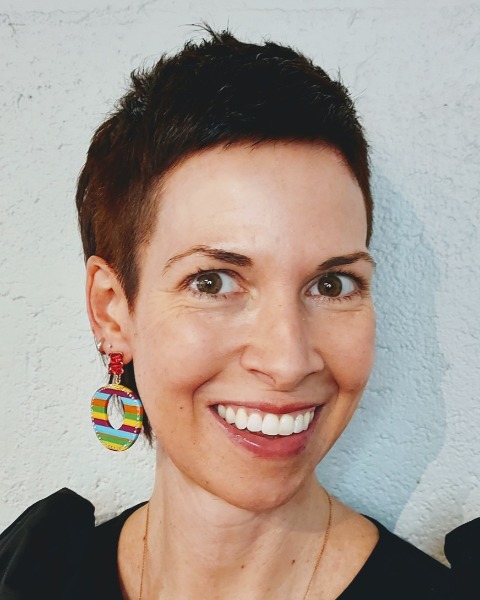Neonatal General
Neonatal General 3: Ethics, Parents Take the Lead
284 - Predicting and preparing for the future of babies born extremely preterm: Parents give recommendations to Clinicians
Friday, April 28, 2023
5:15 PM - 7:15 PM ET
Poster Number: 284
Publication Number: 284.132
Publication Number: 284.132
Rebecca L. Pearce, St Justine Hospital (where I am a resource parent), Montreal, PQ, Canada; Thuy Mai Luu, Centre Hospitalier Universitaire Sainte-Justine, Montreal, PQ, Canada; Emilie Thivierge, CHU Sainte-Justine, Montreal, PQ, Canada; Magdalena Jaworski, CHU Sainte-Justine, Montréal, PQ, Canada; Claude Julie Bourque, Université de Montréal, Montreal, PQ, Canada; Anne Synnes, University of British Columbia Faculty of Medicine, Salt Spring Island, BC, Canada; ANNIE Janvier, University of Montreal, Montréal, PQ, Canada

Rebecca L. Pearce, BSc, MSc, BEd (she/her/hers)
Parent Representative, Graduate Student
St Justine Hospital (resource parent)
Montreal, Quebec, Canada
Presenting Author(s)
Background: Parents of extremely preterm children face many challenges and uncertainties. The information and support provided by clinicians -both before and after birth- is invaluable to help them prepare for the future.
Objective: To explore the information needs of parents of extremely preterm infants.
Design/Methods: All parents of infants born < 29 weeks’ gestational age and seen for neonatal follow-up between the ages of 18 months and 7 years were consecutively recruited over a one-year period. Parents were asked: “Knowing what you know now, what do you wish doctors would have told you about prematurity before and/or after your child's birth?” Answers were analyzed using mixed methods.
Results: Nearly half (45%) of the 249 parents (98% participation rate) were satisfied with the medical information and support they received, either before of after birth. Prenatally, 16% felt that more practical information was needed in term of the function of babies born preterm (not only diagnoses), some parents would have liked prematurity to be mentioned in their normal pregnancy follow-up. 19% of parents wanted to know more about the life-trajectory of babies in the NICU, what was “the next step”, as well as how they could be part of the team to help their baby: “what are the different steps during the stay and how we can help as parents”. 22% wished discharge to be improved, to be better prepared for the future: “BPD does not help. We would have liked to know what leaving on oxygen meant, that she should not go to daycare, the risk with infections, RSV shots, sleeping problems many preemies have. This could have been done weeks before we left the hospital”. 14% wished they had known more about resources for psychos-social support. Parents (14%) wished for clinicians to be more optimistic and to give them hope: “Before birth, I would have liked to know that most micro preemies do well”.
Conclusion(s): Although half the parents are satisfied with information and support received, the other half recommends improvements, mainly to make it positive and practical. Diagnoses did not help parents prepare for the future prenatally, in the NICU or at discharge, but function and what parents could do (in a practical fashion) did.
